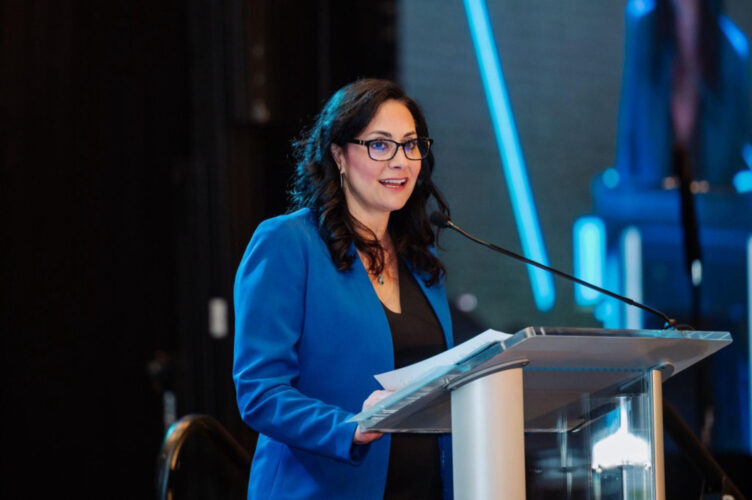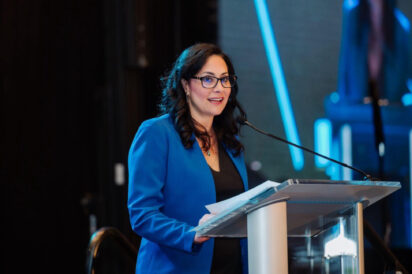Money Matters: A 5-minute call could help Utahns avoid costly mistakes

Courtesy photo
Sarah K. Magruder Lyle is president and CEO of the Common Ground Alliance, a national nonprofit dedicated to protecting underground infrastructure.As Utah continues its breakneck growth — marked by massive road expansions, booming housing developments and billion-dollar data center projects — the ground beneath our feet is getting crowded. Very crowded.
And what most Utah homeowners and business owners don’t realize is just how easy it is to damage something important hiding just below the surface of their own yard or property.
In 2023 alone, Utah saw 1,706 reported damages to buried utilities. That’s nearly five incidents per day, each of them carrying the potential for serious financial consequences, service disruptions and safety risks. Many were preventable with one simple step: calling 811 before digging.
“Damage from landscaping work is most frequently associated with failing to contact 811 before getting started,” said Sarah K. Magruder Lyle, president and CEO of the Common Ground Alliance (CGA), a national nonprofit dedicated to protecting underground infrastructure. “Even simple tasks like planting a tree, installing a fence or putting in a mailbox can strike a critical line.”
That’s why CGA members — including utility professionals, public works leaders and damage prevention experts — gathered last week in Park City for their national Summer Committee Summit, a closed-door event where the group adopts updates to its industry-leading Best Practices for damage prevention. It’s a technical gathering, but one with very real implications for Utahns.
Why this matters to your wallet
The damage from accidentally cutting through a gas line or fiber optic cable involves more than just tripping a breaker or delaying a construction project: It can get expensive, fast.
“The answer is simple: Preventing a utility strike is cheaper and safer than fixing one,” Magruder Lyle said. “Damages cost an estimated $30 billion annually nationwide, so taking prevention seriously saves everyone money.”
Homeowners who skip the 811 call could be on the hook for thousands in repairs or worse: injury-related costs if something goes terribly wrong. For contractors and developers, a strike can mean project delays, fines and additional labor. For municipalities, it adds pressure to emergency services, disrupts infrastructure and ultimately increases costs for taxpayers.
“Damage prevention protects what matters most,” she said.
Utah’s growth is raising the stakes
Anyone who’s driven Interstate 15 can see the signs of what’s coming: expanded highway systems, booming tech campuses and new neighborhoods rising from former fields. The Utah Department of Transportation has announced 152 new road projects for 2025 valued at over $1.7 billion. In the private sector, companies like Novva are investing billions to build sprawling AI-powered data centers across the state.
But with growth comes risk. More shovels in the ground means more chances to hit something.
“Utah’s rapid growth really highlights the need for coordinated damage prevention,” said Magruder Lyle. “More digging means there’s a higher risk of accidental strikes to underground utilities, so this means that without strong, coordinated efforts, this growth could have a negative impact.”
That’s why CGA’s mission matters, not just for massive contractors and utility companies but for individual property owners, too.
What homeowners can do — starting now
The most important thing Utahns can do is contact Blue Stakes of Utah, the state’s local 811 service, before any digging project. It’s free, easy and required by law.
“The 811 ‘Call Before You Dig’ service — known here as Blue Stakes of Utah — is the most important tool,” she said. “It’s the free, easy way to get underground utility lines marked and reduce the risk of dangerous and costly strikes.”
Once 811 is contacted, either by dialing or visiting BlueStakes.org, utility companies will send a locator to mark buried lines on your property with color-coded paint or flags. This helps ensure that you avoid critical utilities and make smart decisions about where and how to dig.
It doesn’t matter if your project is small, Magruder Lyle emphasized.
“One of the biggest misconceptions I see is people thinking, ‘If I’m just digging a little bit, or only in my own yard, I don’t need to contact 811.’ That’s just not true.”
Shared responsibility and collective savings
Preventing utility damage isn’t just about personal safety: It’s about protecting community infrastructure and ensuring that services remain uninterrupted for schools, hospitals, families and businesses across the region.
“Shared responsibility means everyone plays a vital role,” Magruder Lyle said. “For individuals, it’s contacting 811 before any dig. For companies like excavators, utilities and locators, it’s adhering to best practices…. For local governments, it’s enforcing state and local digging laws and promoting 811 awareness.”
It’s also about thinking beyond the present. CGA isn’t just focused on maintaining what we have now: They’re investing in what comes next.
“‘Best Practices’ are the current industry standard…. ‘Next Practices,’ however, is about proactive innovation and continuous evolution,” she said. “It’s about pushing the boundaries of damage prevention to shape a safer, more efficient future.”
A better future, one dig at a time
As Utah’s population surges and construction zones multiply, it’s tempting to think the responsibility for damage prevention lies with someone else. But as Magruder Lyle reminds us, it’s a collective effort, and the consequences of inaction are shared, too.
“You may not immediately realize it, but your vigilance truly contributes to Utah’s collective safety and prosperity,” she said.
Whether you’re breaking ground on a new build or just planting a tree in the backyard, the math is simple: A five-minute call can prevent thousands of dollars in damage and help keep Utah’s infrastructure safe, functional and future-ready.
Doug Fox is the content manager for Stage Marketing, a full-service content marketing agency based in Lehi.



